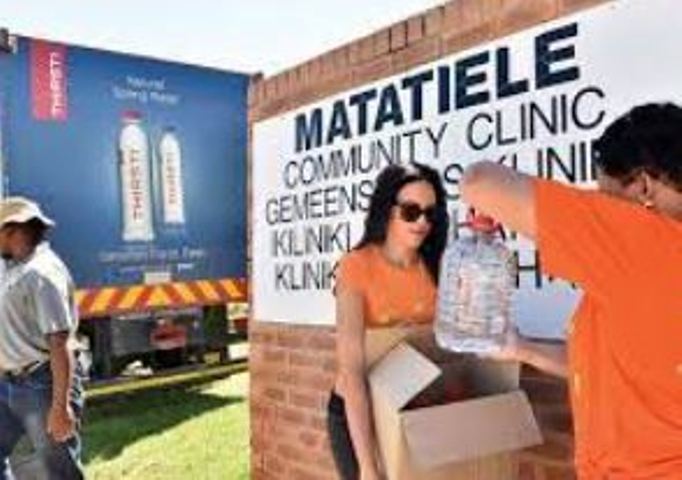Temporary spectrum changing lives of Matatiele community
Sister Mofokeng of the Matatiele Community Clinic is among those who have seen an improvement in her internet connectivity.

- Country:
- South Africa
The release of the temporary spectrum is changing the lives of the community of Matatiele, which straddles the border between the Eastern Cape and KwaZulu-Natal.
Sister Mofokeng of the Matatiele Community Clinic is among those who have seen an improvement in her internet connectivity.
“I’ve seen an improvement in internet connectivity around here. The faster speed of connectivity enables us to transfer patient files, carry out statistical reporting and conduct medical analysis. We are now able to do all of this quickly and more effectively,” she said.
In March last year Minister of Communications and Digital Technologies Stella Ndabeni-Abrahams gazetted directions that enabled the Independent Communications Authority of South Africa (ICASA) to make additional radio frequency spectrum available to operators.
At the time, this was to ensure that mobile network operators would be able to cope with increasingly higher rates of internet connectivity as a record number of employees started working from home as a result of the Coronavirus pandemic.
“I must say I didn’t know that the improvement was because of the temporary release of the spectrum,” says Mofokeng.
For community health centres, faster internet connectivity means better prospects for providing quality healthcare services to a greater number of patients.
Matatiele, Kokstad and Mount Fletcher are some of the areas where mobile network operators have deployed temporary spectrum to overcome historical capacity constraints.
“Improving access to information is at the heart of our deliverables as a department. The reality that we are dealing with and that we are trying to provide solutions for is growing inequality when it comes to accessing information.
“We all know that access to information can play a transformative role in people’s lives. We must remember that universal access to information is a fundamental human right,” said Ndabeni-Abrahams.
For entrepreneur Johan Kruger, the owner of a filling station in the busy main road in Matatiele, the additional spectrum has resulted in a visible change in the operations of his business.
Previously operating his point of sale device he says, was a nightmare, due to poor connectivity.
“Transactions would be routinely declined, and this was a source of endless frustration to us and customers,” said Kruger.
He notes that there has been a visible improvement in transaction speeds.
It’s not only data traffic that has seen an improvement as a result of the release of the temporary spectrum, but the quality of voice calls has also gotten better.
Mme Mokoena an elderly granny living with her grandchildren is an active user of voice calls to communicate with her daughters who work in Gauteng.
“The network between and Mount Fletcher and Matatiele used to be a big challenge. But now there is an improvement,” she said.
Meanwhile, as part of COVID-19 interventions, Ndabeni-Abrahams is working with her counterparts in the Departments of Basic and Higher Education in a partnership that includes mobile network operators and internet service providers, to make data available for learning purposes.
These companies have approved hundreds of local websites to be zero-rated for educational purposes.
Zero-rated websites include, among others, those of TVET colleges and universities, as well as sites that provide information that can help South Africans mitigate the risks that come with the Coronavirus.
In addition to more than the 1000 websites which are already zero-rated, there are additional sites that are pending approval, thanks to the intervention of the Minister.
Zero-rating of telecommunications and data services for specified public services like health and education are important interventions to empower communities and the youth.
Back at the Community Health Centre Aphiwe Mtongana, an unemployed youth walks in to access free Wi-Fi.
“I come here often to access the internet to apply for jobs. The experience is different now. Previously it would take forever to access just one website, sometimes I would even give up. But it’s a lot faster now. I’m hopeful that eventually one of my applications will land me a job,“ said Mtongana.
(With Inputs from South African Government Press Release)










